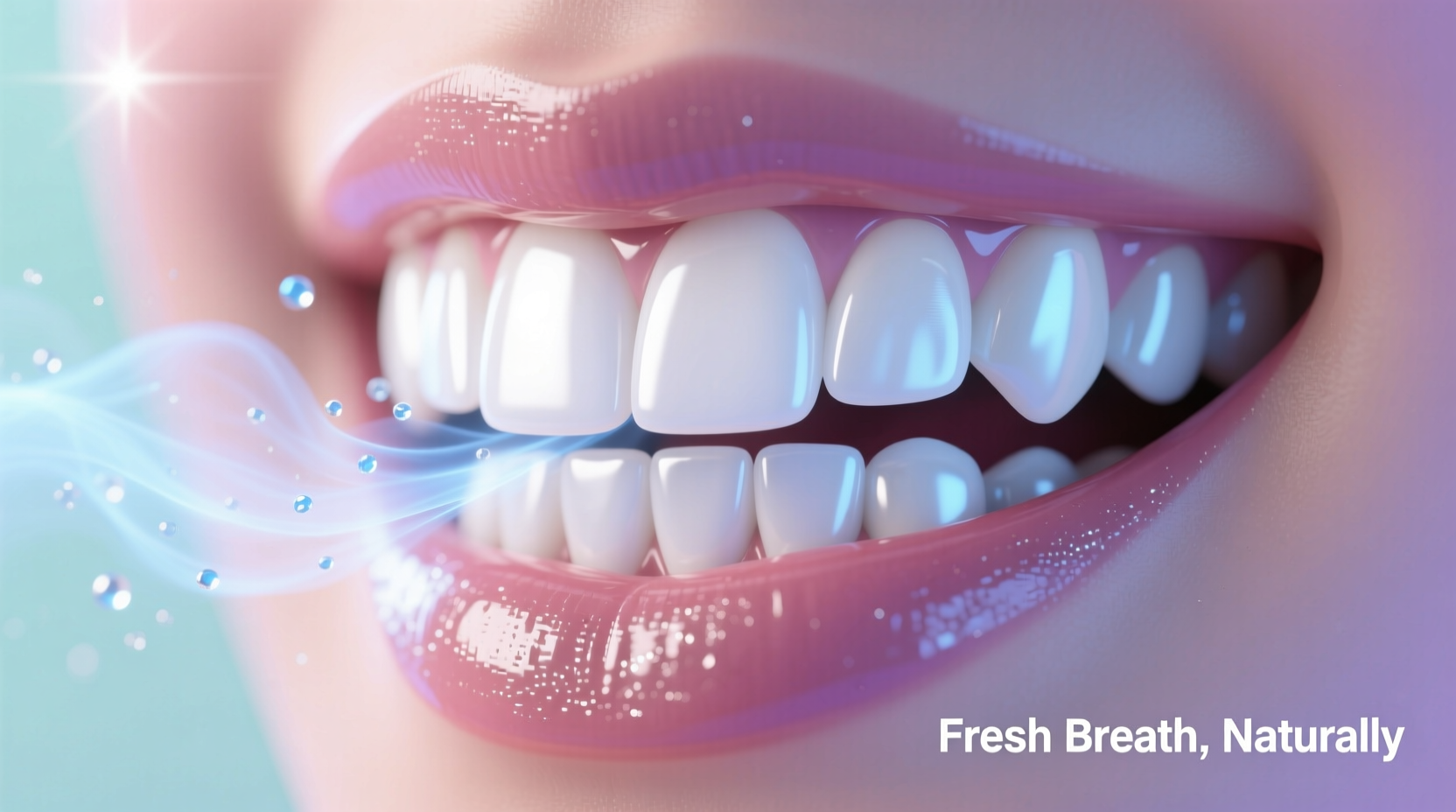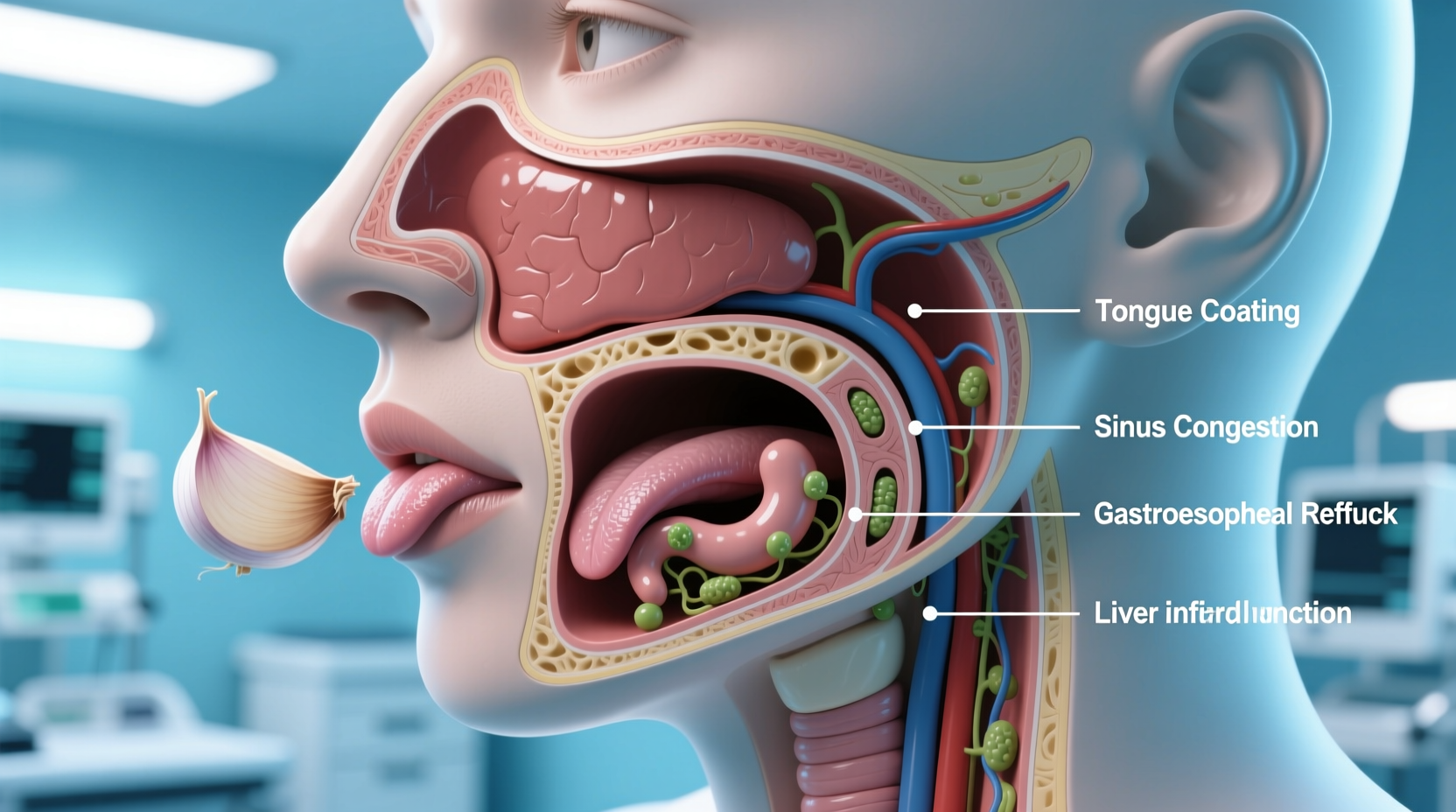Waking up to the distinct odor of garlic on your breath when you haven't touched a single clove can be both confusing and concerning. This unexpected symptom affects more people than you might think, and understanding its root causes is the first step toward finding relief. Unlike typical garlic breath that comes from eating the pungent bulb, this mysterious odor often signals underlying health conditions that require attention.
The Science Behind Unexpected Garlic-Smelling Breath
When you eat garlic, the sulfur compounds responsible for its characteristic smell enter your bloodstream and are expelled through your lungs, causing that familiar garlic breath. But when you haven't consumed garlic, the same sulfur compounds are being produced internally through different biological processes.
Allicin, the primary compound in garlic that gives it its distinctive odor, breaks down into volatile sulfur compounds (VSCs) like allyl methyl sulfide. Your body can produce similar compounds through:
- Digestive processes breaking down certain foods
- Bacterial metabolism in your gut or mouth
- Liver processing of medications or toxins
- Metabolic disorders affecting how your body processes nutrients

Top Medical Causes of Garlic-Smelling Breath Without Garlic Consumption
| Cause | How It Creates Garlic-Like Odor | Additional Symptoms |
|---|---|---|
| Gastrointestinal Issues (GERD, H. pylori) | Stomach acids and bacteria produce sulfur compounds that travel up the esophagus | Heartburn, bloating, nausea |
| Liver Dysfunction | Impaired liver function leads to buildup of dimethyl sulfide, which smells like garlic | Jaundice, fatigue, abdominal swelling |
| Metabolic Disorders | Conditions like trimethylaminuria disrupt normal metabolic processes, producing sulfur compounds | Fishy body odor, digestive issues |
| Medication Side Effects | Some drugs metabolize into sulfur-containing compounds | Dizziness, dry mouth, altered taste |
When to Take This Symptom Seriously: Medical Red Flags
While occasional unusual breath odor might not indicate serious problems, certain patterns warrant medical evaluation. According to the Mayo Clinic, persistent garlic-like breath odor without dietary explanation should be investigated if:
- The odor persists for more than 2 weeks despite good oral hygiene
- You experience additional symptoms like jaundice or abdominal pain
- The odor is accompanied by changes in urine or stool color
- You've recently started new medications that list unusual breath odor as a side effect
Practical Steps to Address Garlic-Smelling Breath
Immediate Self-Care Measures
While these won't address underlying medical causes, they can provide temporary relief:
- Maintain thorough oral hygiene with antibacterial mouthwash
- Stay well-hydrated to prevent dry mouth
- Use tongue scrapers to remove bacterial buildup
- Chew sugar-free gum containing xylitol to stimulate saliva production
Medical Diagnosis Process
Your healthcare provider will likely follow this diagnostic pathway:
- Comprehensive medical history review focusing on symptom onset and duration
- Physical examination including oral and abdominal assessment
- Basic blood tests to check liver function and metabolic markers
- Potential referral to gastroenterology or hepatology specialists
- Specific tests like urea breath test for H. pylori if gastrointestinal issues are suspected
Prevention Strategies for Long-Term Management
Depending on the underlying cause, these approaches may help prevent recurrence:
- Dietary modifications: Reduce sulfur-rich foods like eggs, dairy, and cruciferous vegetables if gastrointestinal issues are the cause
- Oral probiotics: Certain strains may help balance oral microbiome according to American Dental Association research
- Regular dental checkups: Professional cleanings every 6 months to monitor oral health changes
- Medication review: Discuss alternatives with your doctor if current medications cause this side effect
When to See a Doctor: Timeline Guidelines
Understanding when to seek medical attention can prevent complications. The National Institutes of Health recommends this timeline approach:
- 1-3 days: Monitor symptoms and maintain good oral hygiene
- 1 week: If odor persists, schedule appointment with your primary care physician
- 2 weeks: Seek evaluation if accompanied by other symptoms like fatigue or digestive issues
- Immediate: If you experience jaundice, severe abdominal pain, or vomiting
Context Boundaries: When This Symptom Is More or Less Concerning
Not all cases of garlic-smelling breath indicate serious health problems. Consider these context factors:
- Less concerning: Temporary odor after taking certain supplements, short-term medication side effects, or during specific digestive processes
- More concerning: Persistent odor lasting weeks, odor accompanied by other systemic symptoms, or sudden onset without explanation
- Special populations: People with diabetes or liver conditions should be particularly vigilant about unusual breath odors











 浙公网安备
33010002000092号
浙公网安备
33010002000092号 浙B2-20120091-4
浙B2-20120091-4